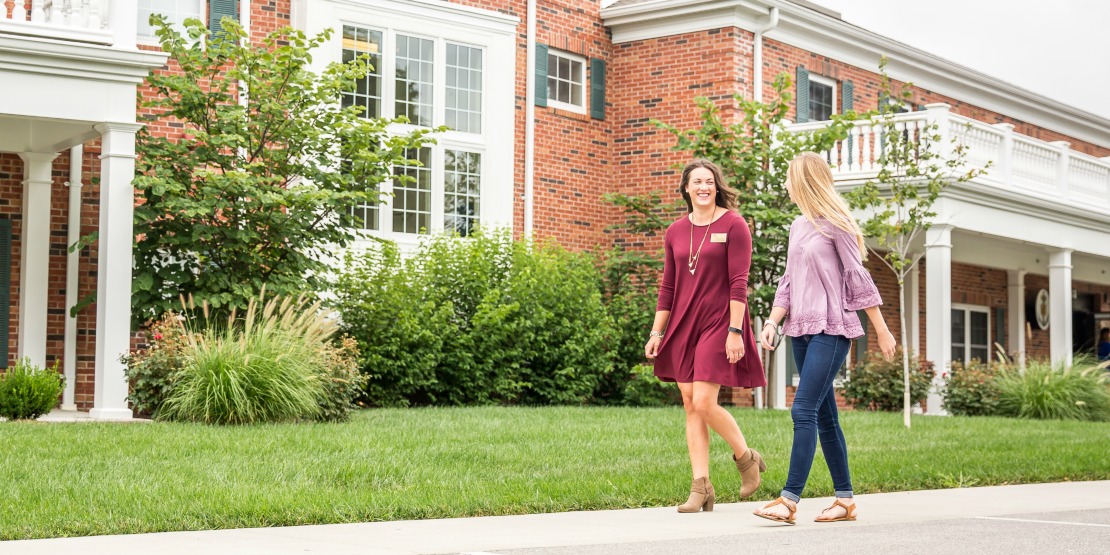Lacey Sweeten Randall ’11, MBA ’13 is the director of Student Involvement at William Woods University. After earning both her undergraduate and graduate degree here, Sweeten Randall now oversees all of the organizations and Greek life chapters on campus, helping students enrich their college experience through involvement and activities.
Recently, she sat down with Emily Barker ’19 to answer 5 Questions.
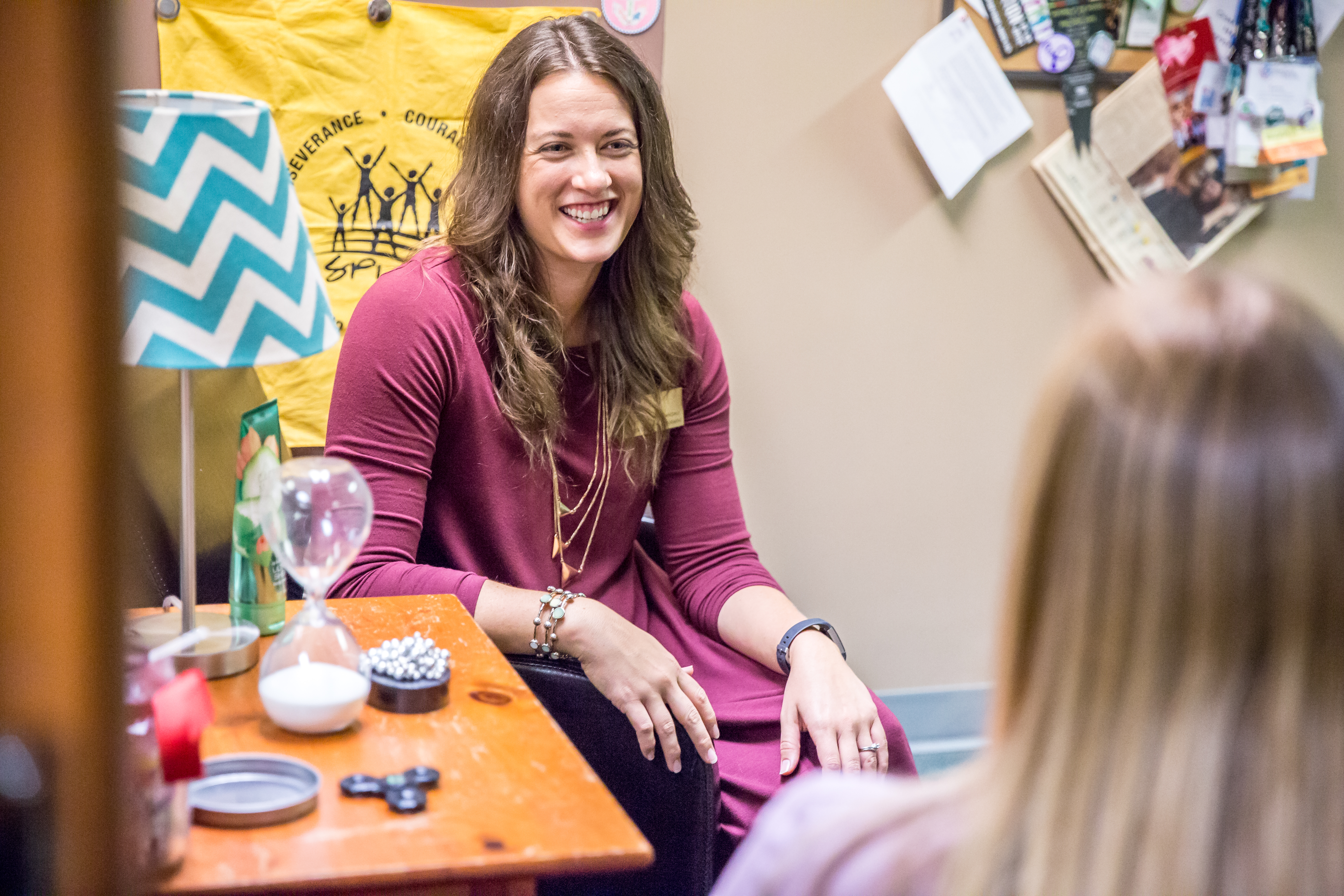
Q1: What is your role with sorority and fraternity life on campus?
I am the sorority and fraternity life advisor for William Woods. My job is to work with all of the chapters and also advise the Panhellenic and Interfraternity Council (IFC).
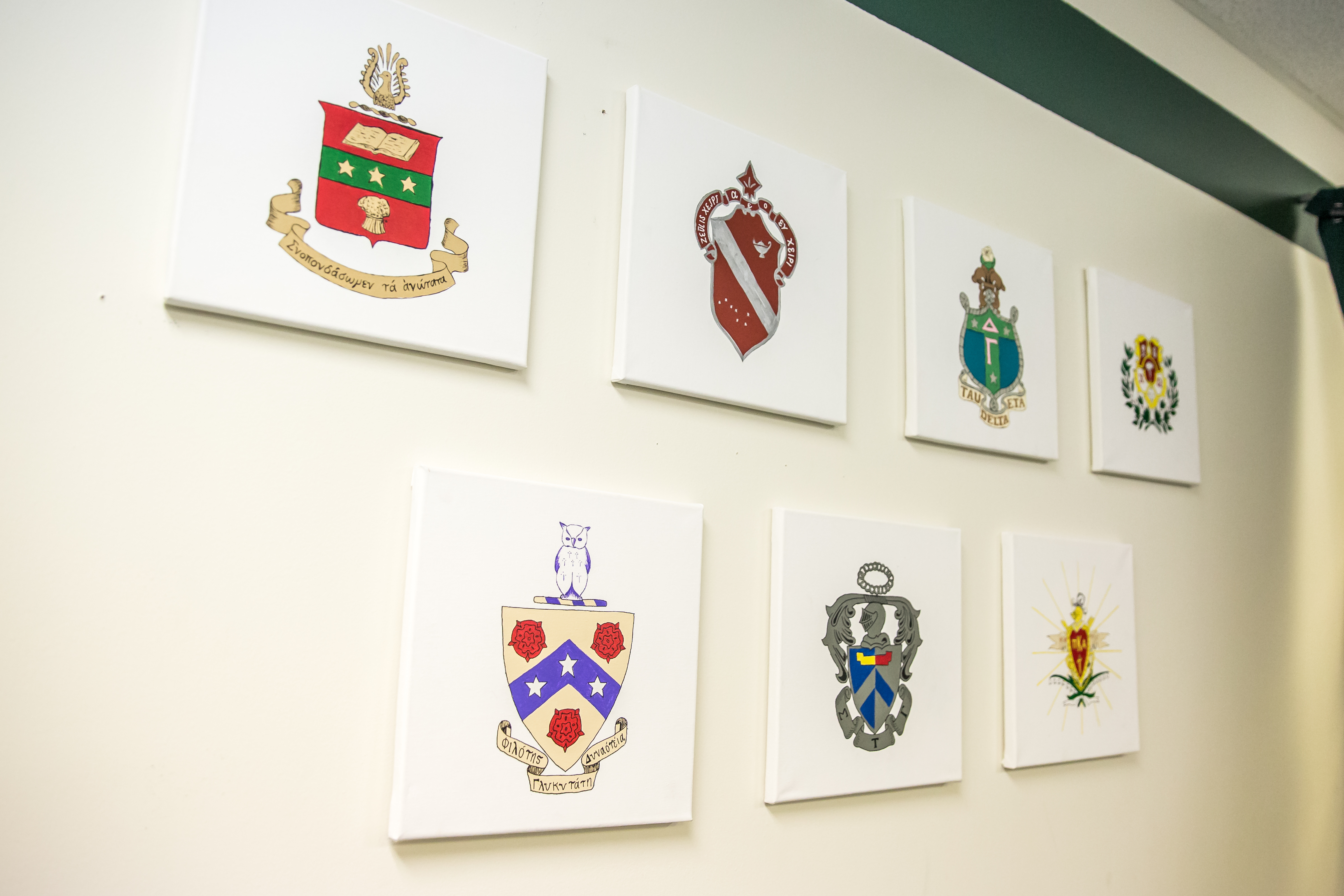
I work with each of the chapter’s presidents and meet with them on a weekly basis to discuss upcoming events, questions, ideas, concerns, etc. Since so many students on campus are involved in Greek life, it’s really important to take the time to make sure that each chapter is doing well and achieving its goals.
When I started in Student Involvement, we officially decided to proceed with the building of Sorority Circle. There were a lot of small logistics that went into the project and I helped managed those. It’s crazy to think about it now, but I have a distinct memory of being in a room in the Gladys W. Kemper Center for the Arts and talking about this huge concept of new sorority houses when I was still an undergrad student. It’s incredible to have witnessed the process of the sorority houses starting out as just a conversation to actually becoming a reality.
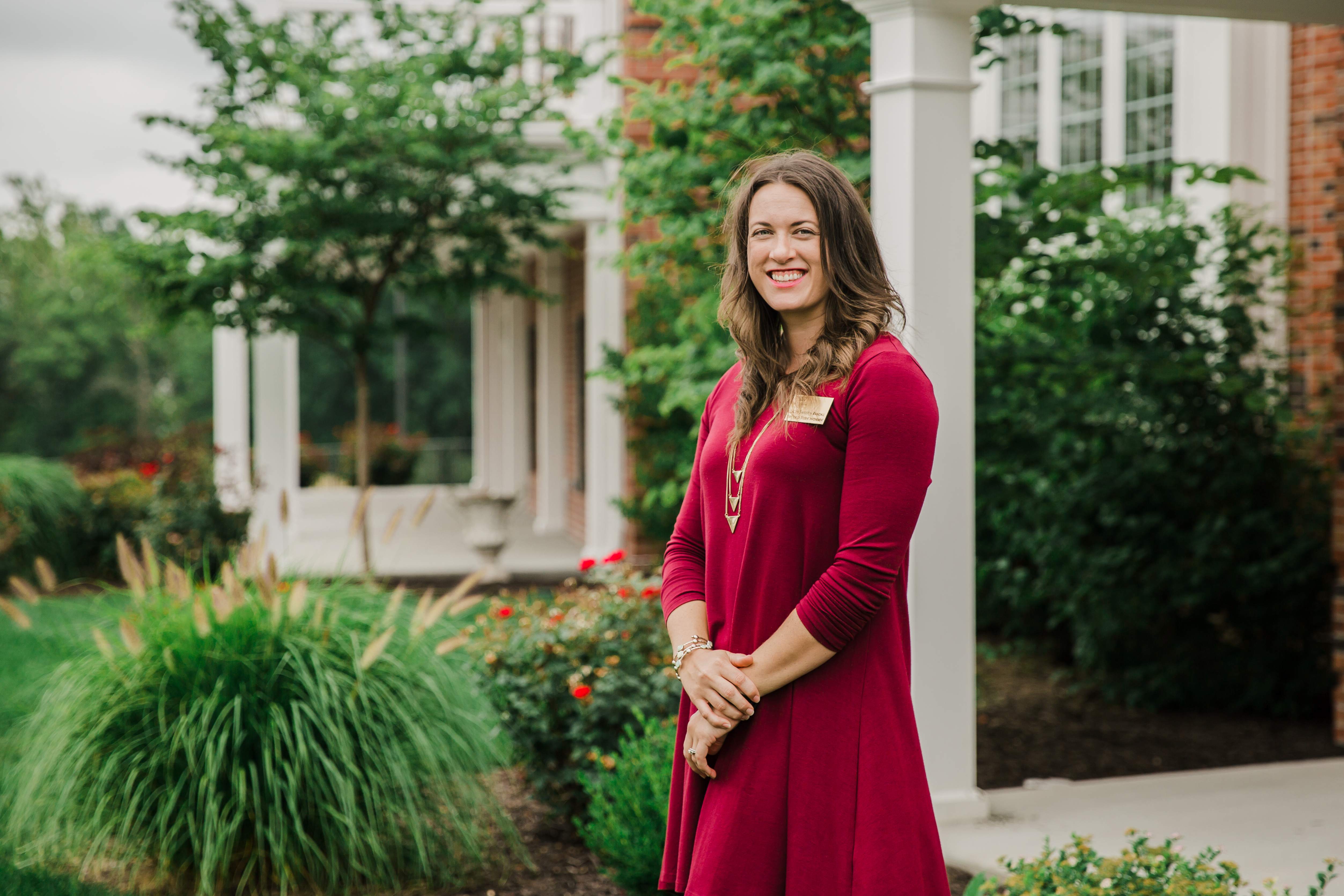
Q2: Do you have any advice on how students can become more involved on the William Woods campus?
I always encourage incoming students to go out and get involved. Meeting people in your hall, hanging out in your hall’s lounge, and going to LEAD events are great steps towards getting involved and meeting new people in the first couple of weeks.
The first thing you can do to get involved is to participate in sorority and fraternity recruitment during orientation week. Going through recruitment is a great way to meet new people, including upperclassmen and your fellow incoming peers. Even if you ultimately choose not to go Greek, it’s a great first step towards getting involved, making educated decisions, and obtaining LEAD points.
All of my fondest memories as a student revolve around my sorority experience. I served as my sorority’s president my sophomore year. That experience was challenging, but it gave me confidence and helped me grow as an individual — more than probably anything else has done in my life. I highly suggest that everyone should give sorority and fraternity recruitment a try.
I also encourage incoming students to attend the Student Activities Fair. The fair is usually hosted during the first couple weeks of school and is a great way to see all the groups, clubs, and organizations on campus. I always tell students to sign up for at least one club/organization.
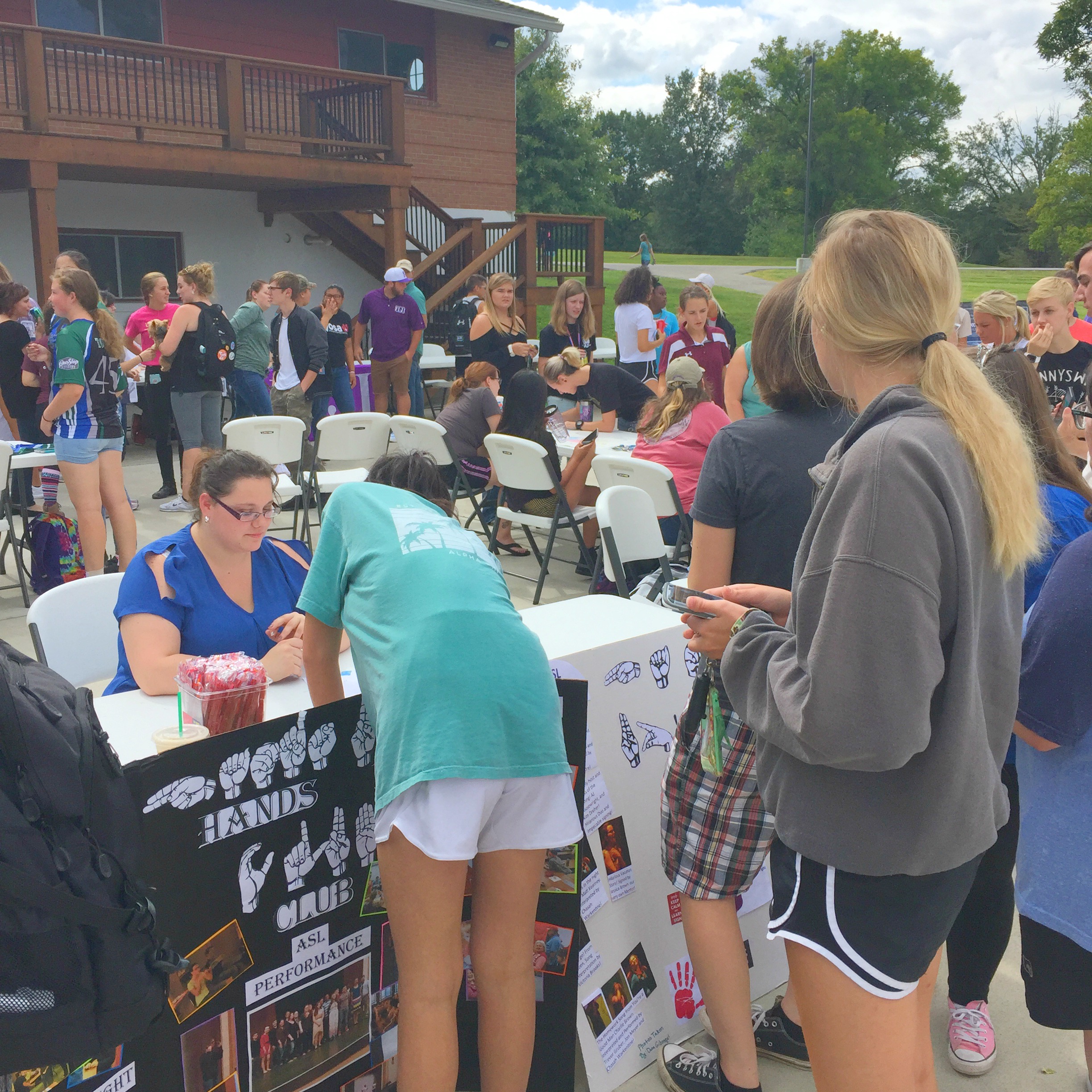
Q3: You are in charge of Peer Educators. What is this group and why is it important?
Peer Educators are a group of students tasked with doing programming for their fellow peers on a series of topics. Both the content and discussions we share are essential to any college campus. Our Peer Educators take programming a step further by offering peer-to-peer communication, which seems to have a higher impact on students.
Our topics are broken down into sections like healthy sexual relationships, alcohol and drug use, and emotional/mental health. Some topics are suggested by the Peer Educators themselves or by the university, but each year we try and focus on a different topic. For example, this past fall we focused on fitness and healthy eating and did a whole week of different fitness classes for students to try and units on how to maintain a healthy diet and lifestyle.
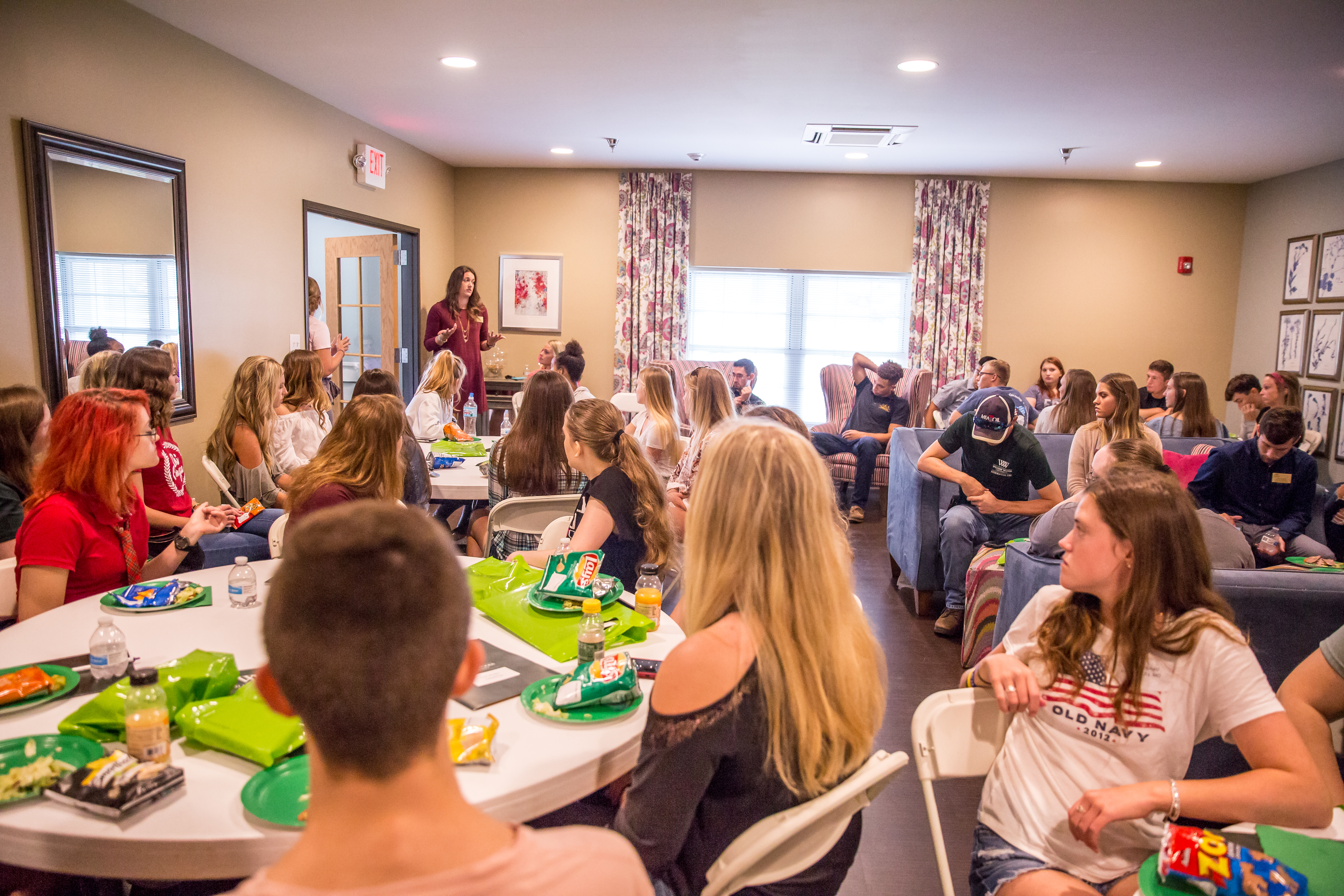
Q4: You recently started teaching an Applied Leadership course. Why is leadership an important skill for students to learn?
Applied Leadership is an eight-week course that meets once a week and is designed for students to learn various leadership concepts and apply them to something the student is currently doing.
Right now, a lot of the students in the class are fraternity/sorority presidents, members of IFC and Panhellenic, Community Advisors (CAs), and club/organization presidents. I highly encourage campus leaders to take the class because they can take the concepts they learn and apply it directly to their leadership role.
In general, leadership is a super important skill for people to learn and hone. It’s not one of those things that you just learn and check off.
Leadership is a constant learning and developing process and it’s something you’ll use in all facets of your life.
Q5: What are some of the most interesting activities that clubs have hosted?
Most of my favorites are from the Saturday Night Live series of events we host on campus. The Campus Activities Board (CAB) started this series a few years ago and students love it. Since CAB itself can’t host an event every Saturday night, other clubs, organizations, and offices on campus partner with CAB.
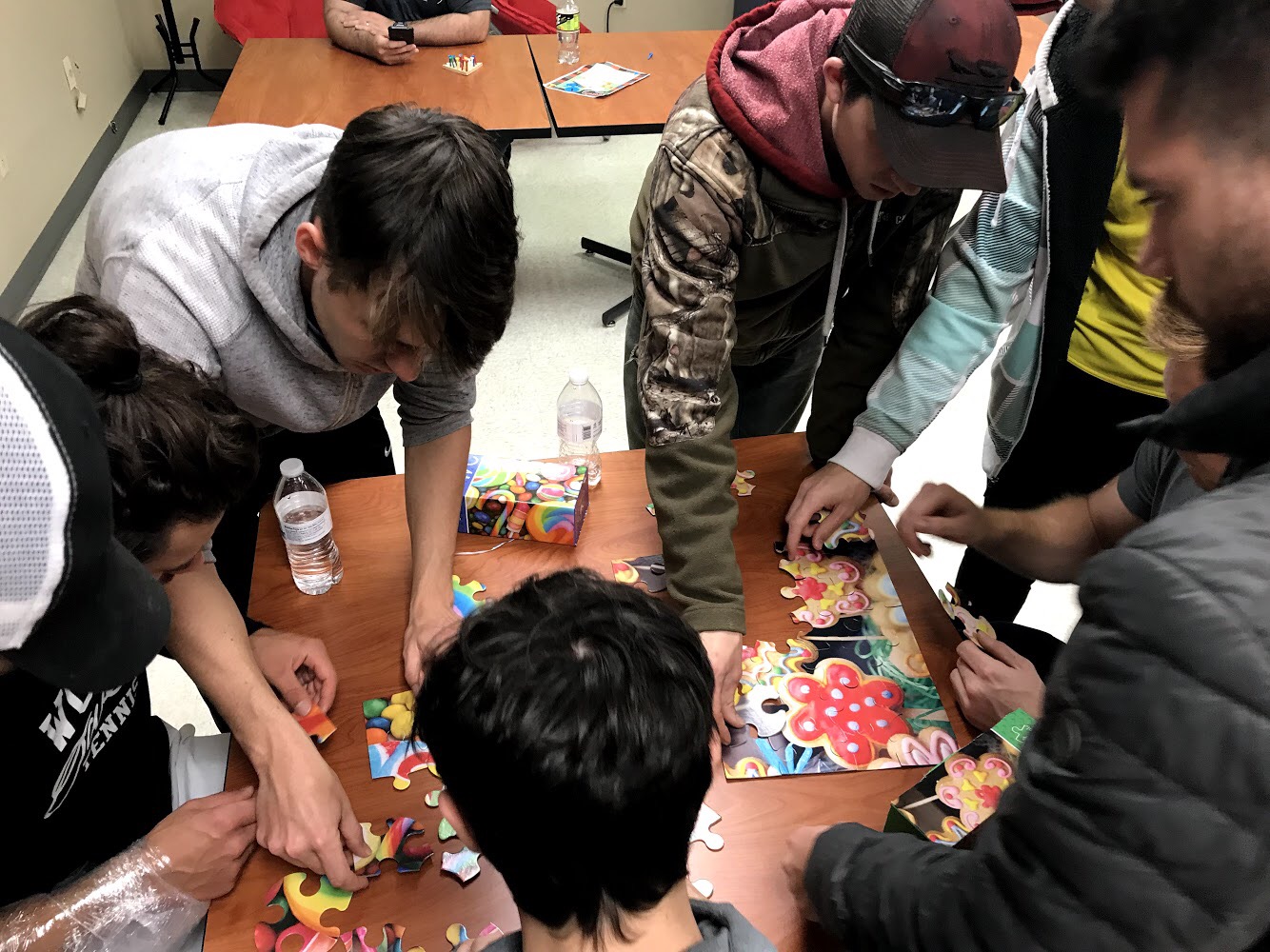
For example, the Student Website Advancement Team (SWAT) hosted an escape room one Saturday night, where students had to form groups and go through a series of rooms and problem solve. Another one of the most popular SNLs this past semester was a cupcake war hosted by Panhellenic.
The ODK Leadership Conference in the spring is always one of my favorite events as well. We bring in engaging keynote speakers and offer a variety of breakout sessions for students to learn various leadership concepts and gain hands-on experience. We normally have about 100 students attend and always receive great feedback from both faculty and students.

